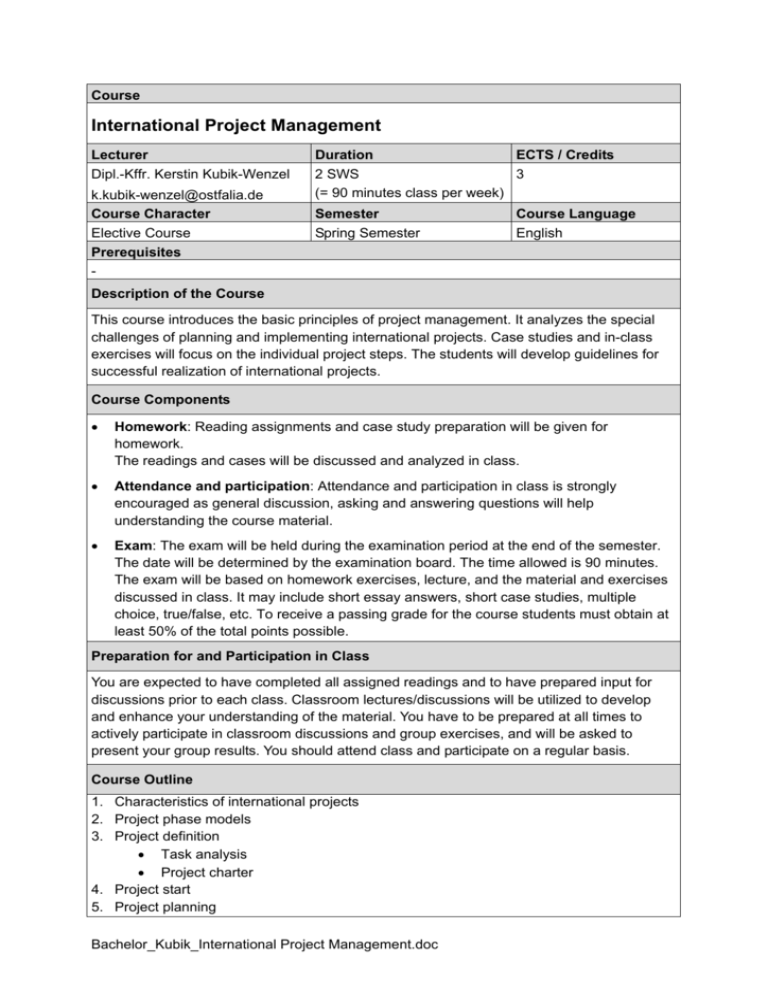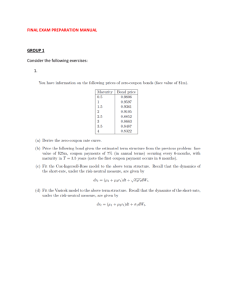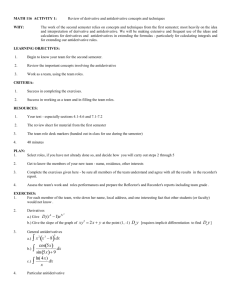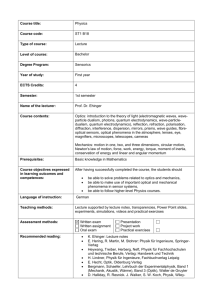International Project Management
advertisement

Course International Project Management Lecturer Dipl.-Kffr. Kerstin Kubik-Wenzel k.kubik-wenzel@ostfalia.de Course Character Elective Course Prerequisites - Duration ECTS / Credits 2 SWS 3 (= 90 minutes class per week) Semester Spring Semester Course Language English Description of the Course This course introduces the basic principles of project management. It analyzes the special challenges of planning and implementing international projects. Case studies and in-class exercises will focus on the individual project steps. The students will develop guidelines for successful realization of international projects. Course Components Homework: Reading assignments and case study preparation will be given for homework. The readings and cases will be discussed and analyzed in class. Attendance and participation: Attendance and participation in class is strongly encouraged as general discussion, asking and answering questions will help understanding the course material. Exam: The exam will be held during the examination period at the end of the semester. The date will be determined by the examination board. The time allowed is 90 minutes. The exam will be based on homework exercises, lecture, and the material and exercises discussed in class. It may include short essay answers, short case studies, multiple choice, true/false, etc. To receive a passing grade for the course students must obtain at least 50% of the total points possible. Preparation for and Participation in Class You are expected to have completed all assigned readings and to have prepared input for discussions prior to each class. Classroom lectures/discussions will be utilized to develop and enhance your understanding of the material. You have to be prepared at all times to actively participate in classroom discussions and group exercises, and will be asked to present your group results. You should attend class and participate on a regular basis. Course Outline 1. Characteristics of international projects 2. Project phase models 3. Project definition Task analysis Project charter 4. Project start 5. Project planning Bachelor_Kubik_International Project Management.doc Project organization Project structure - Functional structure - Projectized organization - Matrix organization Project staffing Cost estimation, cost planning Work-breakdown structures Milestone plans Project schedule - Network diagram - Gantt chart Cultural impact on project planning 6. Project coordination / controlling Team formation process Project management software Controlling tools 7. Project close-down Lessons learned Formal termination of the project Planning of post-project phase 8. Project documentation 9. Stakeholder analysis Interest - power grid Stakeholder communication plan 10. Communication and team building in international projects Verbal and non-verbal communication Communication styles Culture dimensions 11. Conflicts in international projects Sources for conflicts Conflict resolution 12. Risk management PESTEL-tool FMEA analysis Probability and Impact Matrix 13. Critical success factors References The seminar is based in particular upon the following references: Cleland, D., Gareis, R. Global Project Management Handbook. 2nd ed. New York: Mc Graw Hill 2006. Köster, K. International Project Management. London: Sage 2010. Internet sources www.pmi.org, www.ipma.ch The seminar is also based upon the following references: Bachelor_Kubik_International Project Management.doc Cronenbroeck, W.: Projektmanagement: deutsch-englisch. Berlin: Cornelsen 2008. Project Management Institute: A guide to project management body of knowledge. 4th ed. 2008 / 5th ed. 2013. Important Note: The above outline is tentative to give you an idea of the sequence of topics. It can be modified and is only designed to give you an idea of the topics and the rate at which they will be covered. Some of the above topics will be covered in greater detail than others. The relative importance of each topic will be indicated in class. Bachelor_Kubik_International Project Management.doc







